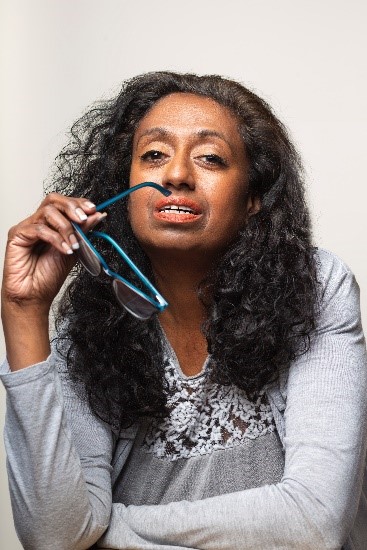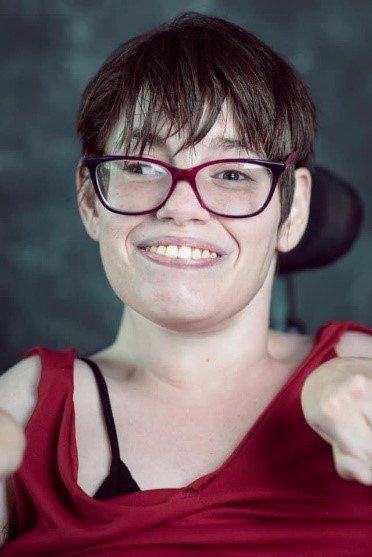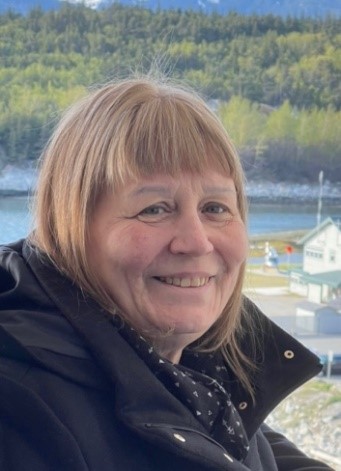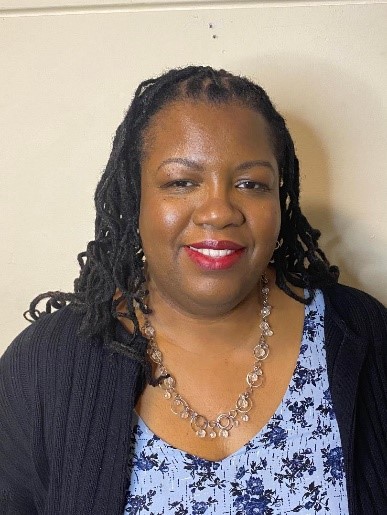Learning Circles
Background: Who we are
The United Nations Convention on the Rights of Persons with Disabilities (the “Convention”) is an international treaty. The goal of the Convention is to protect the rights and dignity of people with disabilities.
Canada agreed to follow the Convention in 2010. As part of the Convention, Canada made the following commitments:
- Promote the human rights of people with disabilities
- Make sure people with disabilities can use and enjoy their rights
- Make sure people with disabilities are treated with equality in Canada
In 2019, the Canadian Human Rights Commission was designated as the National Monitoring Mechanism (or “NMM”). This means the Commission is in charge of monitoring how the Convention is put into action in Canada. The NMM team at the Commission is responsible for this monitoring work. You can learn more about this work by visiting the Monitoring the Rights of People with Disabilities.
Also in 2019, the Canadian Parliament passed the National Housing Strategy Act. The Act establishes accountability tools to help support and monitor the right to housing in Canada. This includes the establishment of the Office of the Federal Housing Advocate (the “OFHA”). The OFHA is responsible for protecting and promoting the right to housing in Canada, and is also located within the Canadian Human Rights Commission. More information on the mandate of the OFHA is available here: https://www.housingchrc.ca/en.
The NMM is working together with the OFHA to create a joint approach to monitoring the areas where disability rights found in the Convention meet the right to housing.
Disability and housing rights
Through a public engagement process in 2020, people told us that housing is a top issue or area of concern for people with disabilities. More recently, half of the submissions made by individuals to the Federal Housing Advocate have identified that at least one person with a disability lives in their household. They also indicate that over half of their income is spent on housing. Recent data from Statistics Canada on the housing experiences of people with disabilities in Canada also tells us that compared to the total population, people with disabilities:
- are less likely to live in a home owned by a member of their household;
- have higher rates of unaffordable housing;
- have higher rates of inadequate housing or homes in need of major repairs; and
- are more likely to be in core housing need.
About the Learning Circles event
The NMM is planning on hosting a virtual “Learning Circles” event.
The purpose of the “Learning Circles” event is for the NMM and OFHA to listen to the views of people with disabilities to help shape our joint monitoring work. It is an opportunity for people with disabilities to be heard on this issue. We hope to engage people directly to develop a set of indicators to help us measure the intersection of the right to adequate housing and disability rights.
During this event, we will be asking everyone the following two questions:
- What do you think needs to be better understood – by governments, service providers and the public – about the right to adequate housing for people with disabilities?
- To help us track progress on the right to housing for people with disabilities, we need to know: who is not being listened to, and what stories, experiences, and information need to be added to the picture?
We are hoping to reach a diverse group of participants who represent a variety of perspectives and lived experiences. If you are attending this session in your own capacity, or if you are representing a not-for-profit organization and will not be compensated by your organization, you may be eligible for compensation according to the Commission’s Interim Policy on Stakeholder Compensation.
We will be hosting similar future events in the winter to learn more from people with disabilities about their experiences with housing in Canada.
Event format
- 2 hours total
- Plenary (30 minutes): Begin with a general meeting with all participants before going into breakout rooms.
- NMM and OFHA review purpose.
- Review engagement guidelines: Everyone gets 5 minutes to answer the two questions that were shared in advance. NMM and OFHA are in listening and learning mode only. There is no back and forth.
- Participants are then divided into breakout rooms (1 hour):
- 5-7 people per breakout room with one facilitator per room. There will be one representative from the Commission in each room to listen and take notes.
- Engagement guidelines are reviewed again. Everyone will have 5 minutes to speak and share.
- Facilitator will invite participants individually to respond to prepared questions. Facilitator will repeat each response to the group in plain language to ensure main ideas and themes are understood.
- Once everyone has had an opportunity to speak, facilitator can work with participants to identify common themes raised and share them back in plenary.
- Return to plenary (30 minutes):
- Facilitators from each room share key themes discussed.
- NMM and OFHA listen and share how input from Learning Circles will be used and how it will be shared back.
Facilitators
Please review the list of facilitators. When you register on Zoom, you will be invited to indicate your two preferred choices of facilitator.
- Alex Nelson (they/them)
Alex is the Community Outreach Coordinator of the National Right to Housing Network. They are also a queer, disabled housing and human rights advocate, with lived experience of homelessness.
Alex has experience in peer support for housing and homelessness, and they hope to help people feel comfortable and supported in sharing their thoughts and experiences. -
 Doris Rajan (she/her)
Doris Rajan (she/her)
Doris holds an MSW and PhD and works at IRIS Institute focused on issues of human rights and gender-based violence against systemically marginalized groups, where she is involved in the design and delivery of social development/ applied research initiatives. Doris is also an actress, playwright, and filmmaker.
Doris’ small group will be in plain and direct language. People will be encouraged to ask questions when something is not clear to them. We hope everyone feels relaxed and safe and will enjoy meeting each other! -
 Vicky Levack (she/her)
Vicky Levack (she/her)
Vicky Levack is a human rights advocate who mostly focuses on disability rights and housing. She is also a vocal advocate against MAiD and institutionalization of people with disabilities. She believes in the power of having uncomfortable conversations with an open mind and authenticity. She has been the spokesperson for the Nova Scotia disability rights coalition for two years but has been a full time advocate for five. - Dr. Jenelle Rouse (she/her)
Jenelle Rouse works in different roles such as an educator, scholar, translator, consultant and artist who value sign language accessibility. She uses Sign Language during a small group engagement. Chat function, English interpretation, and CART are included in respect of access needs. A notetaker might be included to summarize our interactive shared findings with the main room. -
 Heather Walkus
Heather Walkus
Heather is honoured to be the National Chair of the Council of Canadians with Disabilities (CCD). Heather’s background is as a Community Developer, Organizer, and Social Justice Activist. Heather’s small group facilitation style feels like having a conversation around a kitchen table, relaxed, actively listening to each other and time for everyone to share. -
 Ingrid Palmer (she/her)
Ingrid Palmer (she/her)
Ingrid Palmer (she/her) is an award-winning speaker, a diversity and inclusion consultant, and the founder and CEO of Focus On Ability - a campaign designed to combat ableism, challenge bias, and promote universal belonging. As a Black partially sighted former foster kid, Ingrid uses a facilitation style that honours all identities and seeks to amplify the voices and perspectives of those must pushed to the margins - Black, Indigenous and gender diverse folk.
- Date modified: